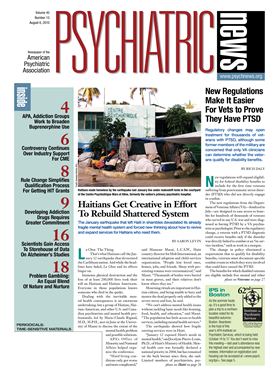Numerous studies have documented the deleterious link between exposure to secondhand smoke and cardiovascular health. And now such exposure appears to be harmful to people's mental health as well, a study reported in the June 7 Archives of General Psychiatry implies.
The study, which was headed by Mark Hamer, Ph.D., a senior research fellow at University College London, took place in Scotland and included a representative sample of more than 5,000 nonsmoking adults.
Secondhand smoke exposure—that is, secondhand nicotine exposure—was measured in the subjects via their salivary levels of cotinine, the primary metabolite of nicotine. The subjects' mental health was evaluated with the 12-item version of the General Health Questionnaire, which is a yardstick of psychological distress devised for population studies. The questionnaire inquires about general level of happiness, experience of depressive and anxiety symptoms, and sleep disturbance over the prior four weeks. The questionnaire is a highly validated instrument and has been strongly associated with various psychological disorders such as depression and anxiety.
After assessing possibly confounding variables such as age, social status, body mass index, chronic illness, physical activity, and alcohol intake, the researchers looked to see whether they could find any link between secondhand smoke exposure in subjects and their General Health Questionnaire scores.
What the researchers found was a robust dose-response association between secondhand-smoke exposure and psychological distress, suggesting a causal relationship.
The researchers then conducted a prospective study with the same subjects to see whether there was an association between subjects' baseline cotinine levels and their admission to a psychiatric hospital over the next six years. In this evaluation, as in the cross-sectional study, some possibly confounding baseline variables such as age, social status, body mass index, chronic illness, psychological distress, physical activity, and alcohol intake were considered. Subjects' psychological distress scores at baseline were also considered.
Indeed, a link was found. Subjects who had had high cotinine levels at baseline were three times more likely to be admitted to a psychiatric hospital within the next six years than were subjects who had had low baseline cotinine levels.
So this finding, plus the cross-sectional one, makes a strong case that secondhand smoke can harm people's mental health, the researchers concluded. Indeed, “to our knowledge, this is the first study to demonstrate a prospective association between objectively assessed secondhand-smoke exposure and mental health in a representative sample of a general population,” they noted.
But if secondhand smoke can truly harm people's mental health, what are the mechanisms of action? The major (though not the only) reason why subjects were admitted to a psychiatric hospital in the wake of secondhand-smoke exposure was depression. So it's quite possible that secondhand smoke increases people's risk of becoming depressed by disturbing the hypothalamic-pituitary-adrenal axis, the researchers proposed. In fact, animal data indicate that tobacco can induce negative mood, and a strong link has been found in humans between smoking and mood disorders (Psychiatric News, June 4).
The study was funded by the Scottish Executive, the British Heart Foundation, the National Institute for Health Research, the UK Medical Research Council, and other organizations.
